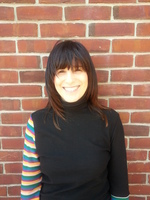
NOTE: THIS WAS ORIGINALLY PUBLISHED IN "A SNEAK PEEK INSIDE," AN ONGOING COLUMN IN BINAH MAGAZINE
Our community is a marvelous place to raise children. Within a radius of twenty or so blocks, they are located near their grandparents, cousins, schools, shuls, and assorted Uvos U’Banim events they choose to attend. They are enveloped in the security of their close contact with their principals and teachers whom they meet in shul, on the street, and sometimes even in the bungalow colony lounging at the pool. They are surrounded not only by cousins at their schools and camps, but their parent’s or aunt’s friends who become their counselors and teachers; by uncles and their friends who sometimes become rebbeim or employers.
It is difficult for a child raised in such a warm, loving environment to envision any sort of evil. It is difficult for such a child to think that some children are scared of their parents’ rages, do not receive dinner if they misbehave, are beaten by siblings, have lice that is neglected, are left alone to care for many younger siblings while their parents disappear for hours, live in filthy homes where laundry piles up for weeks at a time. Such a child cannot envision a home that looks spotless yet breeds fear and a tense atmosphere because parents have personality disorders, mental disorders, where secrets must be kept at all costs to preserve a smooth artificial mask that hides horrific pain and horror.
But this article if not to talk about the child that cannot envision evil, it is to speak to the adults who cannot; and in their naiveté, they help perpetuate the very evil that would shock their goodness.
As a social worker working with the mainstream religious community, I struggle with the very goodness of our leaders, people who are so good that they have no model of malevolence; hence, the damage they inflict on those suffering in our midst. They end up protecting the perpetrators instead of the victims, thinking the victims must be perpetrating hoaxes by accusing their parents, their rebbes, their older siblings of terrible crimes. But how could they know the truth? The only truth in their lives is the wholesome goodness with which they have raised their children; they can envision no other way for a Torah-observant Jew to act.
I will give you a scenario culled from experience working with abuse in our community. I do not break confidentiality here because this is Nobody’s story, yet Everybody’s.
A teenager calls a teacher on the phone. The teacher can barely hear the child as she convulses in tears, bordering on hysteria, choking out her frustration that she works so hard all day long at home, she is not allowed to join her friends after school, she musts cook and clean and care for younger siblings. The child stammers, in her flood of tears, that she has been mechallel Shabbos because how can she believe in Hashem who allows such pain to occur.
The teacher is a seasoned mechanechet. She is a mother herself of fourteen children. She knows how a house is run, how everyone has jobs, how sometimes the oldest child feels much pressure. She knows what a close relationship she has with her oldest daughter, the secrets they share, the privileges her oldest receives as thanks for her hard work. This teacher has counseled hundreds of girls, who are grateful for her clear insight into the roles of a daughter in Klal Yisroel, and who grow up fiercely proud of the roles they play in their homes, eager to perpetuate the warmth of their parents’ homes into their own.
So this teacher begins to calm the girl down. No, it’s that as bad as she is making out. She’s exaggerating. Of course her mother loves her. She’s sure she is able to go out with friends often enough. This is her tafkid, to help her mother, and she will do the same when she is married with children. Maybe she just needs to talk to her mother at some quiet time, explain how she is feeling, and all will be well. Of course Hashem loves her, and she should do teshuvah and never be mechallel shabbos again. This is her nisayon, to be the oldest, and Hashem will repay her.
This wonderful mechanechet then takes it one step further. She asks around, just to make sure everything is alright in this girl’s home. And she hears what wonderful people the parents are, that this girl was always a little bit of a problem, and the rest of the siblings are angels. Nothing is wrong with this girl except that she is a little melodramatic and her poor parents have their hands full with her.
Poor misguided teacher who is basing her understanding of this girl through her own lens of normalcy. What does she know of mothers with personality disorders and hospitalizations that are kept so secret that not even the children know that their mother disappears every six months not to Florida but to the psychiatric ward? What does this teacher brought up in her own healthy home understand how a father can distort a child’s perception that only the normal one feels abnormal and is mechallel shabbos as a last desperate plea for help while the weaker siblings have lost their sense of self, sense of right and wrong, what is normal and what is not.
And so, when a husband comes with a shaylah to a rav, to an exceedingly good-hearted, wholesome community leader, then the rav answers the shaylah without thinking, without saying, “Why are you asking me this shaylah? Where is your wife? I would like to understand from where this question is coming.”
And when a child says, “I don’t want to go home, ever,” the teacher cajoles the child into putting on his coat when she should be checking for bruises on his arms or legs, scars on the heart, asking questions and believing every word he says.
And when the child is mechallel Shabbos, the teacher should not listen to the content of her words, but to the context. Perhaps the child doesn’t know the words of abuse, so she says she has to help too much. Perhaps the child doesn’t know the words to say, “I’m afraid,” and so she says instead, “I have to dry so many dishes and it makes me so angry.”
When your child tugs at his ears, moans in pain, is sleepless all night long, is burning up with fever, it is obvious to you that he must have an ear infection. To a professional mental health therapist, the symptoms of dysfunction are similarly as crystal clear to us.
It is difficult to take action when the enemy is alien to us.
We don’t even know what action to take.
So ask a therapist.
Unfortunately, the therapist knows Evil intimately. They are no strangers. She will introduce the two of you. You will try to understand. You will read some literature. You will learn the enemy. And you will protect the true goodness in our community.
My book, Therapy, Shmerapy, can be found in bookstores or online

 Previous
Previous

